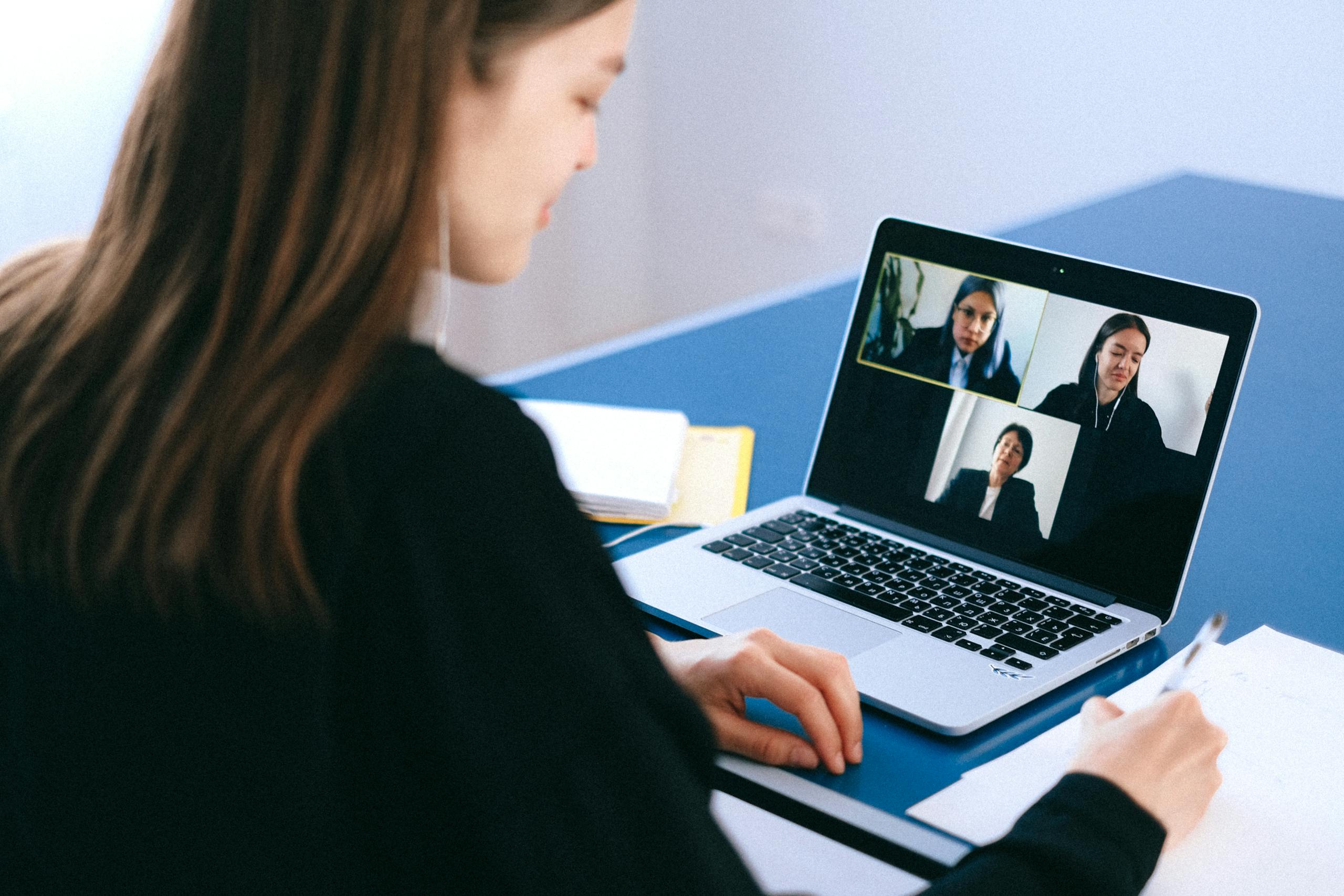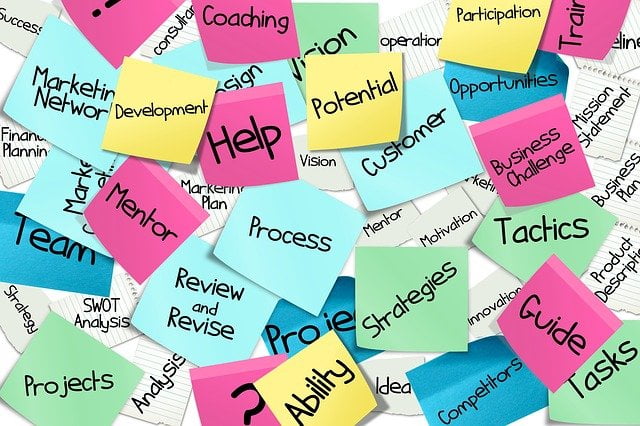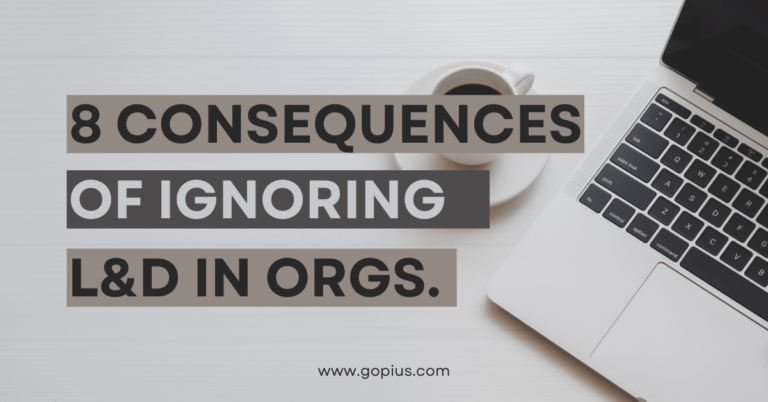Digital Event Marketing Strategies for Your Next Event

The dynamic events industry is ever-evolving, and digital marketing has emerged as a vital tool for success.
Whether you’re planning a virtual conference, hybrid seminar, or in-person trade show, crafting an effective digital strategy is crucial for attracting attendees, fostering engagement, and amplifying your brand’s reach.
Digital event marketing utilizes online channels to promote and enhance events – creating event websites, social media engagement, email campaigns, SEO optimization, and paid ads.
These tactics boost attendance, engagement, and brand visibility, driving success.
Harnessing digital allows event marketers to reach wider audiences, personalize messaging, and track results in real-time.
But with myriad digital options, where should you focus efforts?
How can you craft a cohesive, high-impact, high-ROI strategy?
Don’t worry – we’ve got you covered.
The following sections take a closer look, offering actionable advice to maximize your efforts. All this can help you figure out various promotional channels, as certain audiences still like to receive their materials in physical form, so direct mail remains a valuable tool. Be sure to learn more about direct mail services that can make your campaigns more targeted and effective, ensuring your materials reach the right hands. Personalized mailers with compelling offers or engaging designs can significantly boost response rates. By integrating direct mail with digital marketing strategies, businesses can create a well-rounded approach that maximizes visibility and customer engagement.
Get ready to elevate your promotion game and wow attendees!
Defining Your Digital Event Marketing Goals & Objectives
Before diving into digital marketing, establish a clear vision and define goals.
- What do you hope to achieve?
- Attract a certain registration number?
- Generate leads for future events?
- Enhance brand presence online?
Defining upfront goals will guide your strategy, ensuring every tactic serves a purpose.
Start by setting SMART goals – Specific, Measurable, Achievable, Relevant, and Time-bound.
For example, instead of “increase event attendance,” set a target like “Attract 500 virtual conference registrations within 3 months.”
This specificity allows tracking progress and adjusting the approach if needed.
Next, consider how digital marketing objectives align with your overall event strategy.
- Looking to reach a new audience segment?
- Promote a theme or message?
- Showcase your unique value proposition?
Ensure digital efforts support and amplify these broader goals, creating a seamless attendee journey.
It’s also crucial to define your target audience.
- Who are you trying to reach?
- What are their interests, pain points, preferences?
Creating detailed buyer personas helps tailor messaging and content to resonate with your ideal attendees, increasing engagement and conversion likelihood.
With clear goals, objectives, and target audience defined, explore the digital marketing channels – social media, email, SEO, paid ads.
Each offers unique opportunities to connect with your audience and drive success.
The following sections take a closer look, offering actionable advice to maximize your efforts.
Crafting a Compelling Event Website & Landing Page
Your event website is the digital hub – where potential attendees learn about your event, register, and engage with your brand.
It’s essential to create a visually appealing, user-friendly site with clear calls-to-action (CTAs) and seamless navigation.
Start by choosing a short, memorable, and relevant domain name.
Avoid generic terms or complicated phrases that may confuse potential attendees.
Once you have your domain, select a platform offering customizable templates, easy design tools, and robust functionality – WordPress, Squarespace, or Wix.
When designing, prioritize simplicity and clarity.
Use a clean, uncluttered layout with ample white space to draw attention to key elements like your event name, date, location, and registration button.
Incorporate high-quality images and videos showcasing unique aspects – keynote speakers, networking opportunities, interactive sessions.
Craft compelling copy communicating your event’s value and benefits.
Use persuasive language and action-oriented phrases creating urgency and excitement.
Highlight key selling points like early bird discounts, exclusive content, or limited offers to encourage quick registration.
Consider creating dedicated landing pages for specific marketing campaigns or audience segments, tailoring messaging and CTAs to increase relevance and effectiveness.
For example, a landing page for sponsors highlighting unique opportunities available to them.
Optimize your site and landing pages for search engines by incorporating relevant keywords, meta descriptions, and alt tags – improving visibility in search results and attracting organic traffic.
Ensure your website is mobile-responsive and loads quickly, as many attendees will likely access it from smartphones or tablets.
Finally, include clear, prominent CTAs guiding visitors smoothly through the conversion process – “Register Now,” “Save Your Spot.”
Use contrasting colors, bold text, eye-catching buttons drawing attention to these crucial actions.
Leveraging Social Media for Event Promotion
Social platforms offer powerful event promotion tools – Facebook, Twitter, LinkedIn, Instagram.
Leverage them strategically and tap into vast potential attendee, influencer, and industry partner networks, amplifying your visibility and driving registrations.
Start by identifying the most relevant social platforms for your target audience.
- Where do they spend time online?
- What content engages them most?
Use this to prioritize and allocate resources accordingly.
For example, if targeting young tech professionals, focus on LinkedIn and Twitter; creative entrepreneurs may find more success on Instagram and Pinterest.
Once you’ve selected key platforms, create a content calendar outlining your social strategy leading up to the event.
Plan a mix of promotional posts, behind-the-scenes glimpses, and interactive content encouraging follower engagement.
Use eye-catching visuals – graphics, photos, videos – to stand out in crowded feeds, incorporating relevant hashtags to increase visibility and reach.
Consider social contests or giveaways generating excitement and sharing.
For example, offer a free ticket to one follower sharing your post and tagging a friend.
This user-generated content can expand organic reach, tapping into followers’ networks for word-of-mouth promotion.
Collaborate with influencers or thought leaders amplifying your message and credibility.
Identify individuals with a strong following in your target audience, reaching out about potential partnerships – speaking at your event, sharing content, co-creating promo materials.
When you align with respected industry voices, you boost perceived value and attract wider audiences.
During the event itself, use social media to keep attendees engaged and connected.
Create a dedicated hashtag encouraging participants to share experiences, photos, insights.
Monitor conversations in real-time, responding to questions, comments, concerns.
Live-stream key moments or sessions, extending reach to those unable to attend in-person.
After the event, don’t let momentum fade.
Share highlights, testimonials, key takeaways on social channels, thanking attendees and inviting them to stay connected.
Use this opportunity to gather feedback, insights, ideas for future events, leveraging social media’s power to foster ongoing engagement and loyalty.
Email Marketing: Nurturing Attendees from Invitation to Follow-Up
Email remains one of the most effective event promotion channels, allowing direct communication with your audience to guide them through the entire journey – from invitation to follow-up.
Start by segmenting your email list based on factors like job title, industry, location, or past attendance.
This allows tailoring messaging and content to each group’s interests and needs, increasing relevance and impact.
For example, send different invites to past attendees versus new prospects, highlighting unique values and experiences they can expect.
When crafting content, create a sense of urgency and exclusivity.
Use persuasive language and compelling CTAs encouraging quick registration, emphasizing limited-time offers, early bird discounts, or exclusive perks.
Incorporate eye-catching visuals breaking up text and increasing engagement.
Consider an email drip campaign gradually building excitement leading up to the event – a series of emails teasing different aspects like keynote speakers, networking opportunities, or interactive sessions.
Use each email to highlight a specific benefit or selling point, guiding recipients closer to registration.
As the event approaches, use email to provide practical preparation information and resources – schedule, venue details, parking, nearby accommodations.
Share recommended reading or pre-event activities helping attendees maximize their experience.
During the event, keep attendees informed and engaged via email – send daily recaps, share updates and changes, encourage feedback and social sharing of experiences.
Use email to promote post-event content like session recordings, slides, or attendee surveys.
After the event, send a follow-up thanking attendees and inviting them to stay connected.
Share post-event content, attendee surveys.
Gather feedback and insights improving future events, and consider offering an exclusive discount or perk for early registration to your next event.
Leveraging strategic email throughout the journey allows you build stronger relationships, drive more registrations, and create more engaging, memorable experiences.
Maximizing Reach & ROI with Paid Advertising
While organic social, email, and content promotion can be effective, paid advertising expands reach, driving targeted traffic to your website or landing pages and increasing registration and attendance likelihood.
Start by defining advertising goals and budget.
- Looking to drive a certain registration number?
- Generate leads?
- Increase brand awareness?
- How much can you invest?
Use this to guide ad strategy, selecting the platforms and tactics aligning best with objectives and resources.
When creating ad content, focus on eye-catching visuals and compelling copy clearly communicating your event’s value and benefits.
Use strong CTAs encouraging immediate action – “Register Now,” “Save Your Spot.”
Experiment with formats like image, video, or carousel ads to see what resonates best.
A key paid ad advantage is the ability to hyper-target specific audiences based on demographics, interests, behaviors, job titles.
For example, if promoting a tech conference, target software developers, IT managers, startup founders in certain locations.
To maximize paid ad ROI, track and measure results regularly.
Use tools like Google Analytics or Facebook Pixel monitoring metrics like click-through, conversion rates, and cost per acquisition.
Optimize campaigns over time by adjusting targeting, messaging, or creatives to improve performance and reduce costs.
Consider retargeting to re-engage prospects who’ve shown interest but haven’t registered.
Place a pixel on your site and serve ads to visitors who haven’t converted yet – nudging them further down the funnel by reminding them of your value and encouraging action.
Finally, integrate paid efforts with other channels for a cohesive experience – consistent messaging, branding across ads, social, email.
Taking a holistic approach lets you maximize impact and ROI, driving more registrations, engagement and success.
Measuring Success: Key Metrics & Analytics for Event Marketers
To truly optimize digital efforts, it’s crucial to track and measure results, gaining insights into what’s working, what’s not, and where to focus resources for maximum impact and ROI.
Start by identifying KPIs aligning with specific goals and objectives – metrics like registration rate, conversion rate, cost per acquisition (CPA), return on investment (ROI).
Use tools like Google Analytics, social analytics dashboards, email platforms to track these over time.
Set up conversion tracking to monitor specific campaign or channel performance, using data to make informed resource allocation decisions.
Don’t forget qualitative attendee and stakeholder feedback – surveys, interviews, focus groups uncovering what people loved, would improve, their likelihood to attend future events or recommend your brand.
This insight is invaluable for shaping future event strategy and marketing efforts.
Finally, share event marketing results and insights with your team and stakeholders through data visualizations, reports, or presentations.
Communicate impact, highlight successes and areas for improvement.
When you take a data-driven approach, you continuously optimize strategy, improve results, and deliver more value.
Harnessing the Power of Influencer Marketing for Events
In this age of social media, influencer marketing is a powerful event promotion tool.
By partnering with influential individuals or organizations in your industry, you tap into vast follower networks, increase credibility and reach, attracting wider, more engaged audiences.
Identify influencers aligning with your event’s theme, values, target audience – thought leaders, industry experts, popular bloggers, social media personalities with strong followings in your niche.
Use tools like Buzzsumo, Hootsuite, or Klear to research based on reach, engagement, content quality.
Once targets are identified, pitch them on partnership value and benefits – free tickets, exclusive access, speaking opportunities.
Be clear on expectations like number of social posts, blog articles, email promos.
When working with influencers, provide resources and support for effective promotion – branded graphics, sample posts, talking points highlighting unique selling points.
Encourage authentic perspectives and experiences building trust and credibility.
During the event, continue engaging influencer partners with exclusive content, interviews, behind-the-scenes access to share with audiences.
Encourage live activity – tweeting, recording, blogging about experiences.
Repost and share their content amplifying reach.
After the event, follow up thanking them and gathering feedback on their experience.
Use this to build long-term, mutually beneficial relationships supporting future marketing efforts.
Consider formalizing an influencer program rewarding top partners with exclusives, commissions, or collaborations.
Influencer marketing allows you add a new promotion dimension – reaching new audiences, building buzz, driving more registrations and engagement.
Creating Engaging Video Content for Event Marketing
Incorporating video into your event strategy is essential – from promotional teasers and behind-the-scenes glimpses to live-streamed sessions and post-event recaps.
Especially today where video engages audiences, communicates value, and drives attendance and participation so powerfully.
Start by defining your video content strategy and goals.
- What types resonate best with your audience?
- What messages or themes do you want to convey?
- How will you measure success and impact?
Use these questions to guide planning and production.
When creating promotional videos, focus on telling a compelling story highlighting unique attendee experiences, benefits, and emotions.
Use visuals, music, narration creating excitement and anticipation, including clear CTAs encouraging registration or learning more.
Consider live-streaming key sessions, panels, performances extending reach and impact.
Facebook Live, YouTube Live, Twitch allow real-time broadcasting, engaging remote audiences and creating FOMO driving future attendance.
Promote live-streams in advance, engage viewers through comments, Q&As, polls.
Capture video footage of attendees, speakers, key moments for post-event recaps, testimonials, future promos.
Encourage attendee-generated content using your hashtag; create a video contest or giveaway incentivizing participation.
When producing video, quality matters.
Invest in good equipment, lighting, sound ensuring professional-looking, -sounding videos.
Consider experienced videographers or editors bringing your vision to life.
Use branding elements – logos, color schemes, consistent formatting – creating a cohesive, recognizable video presence across channels.
Optimize videos for search and discovery by using relevant titles, descriptions, tags, and considering transcripts or closed captions making content accessible and SEO-friendly.
Video lets you create a more engaging, immersive, memorable attendee experience driving registrations, attendance and buzz.
Read also: How to Create Effective Instructional Videos for Your ELearning Course
Tapping Into Audio Content for Engaging Event Promotion
While video dominates much of the content marketing landscape, the rise of podcasting and audio platforms presents an exciting opportunity for event marketers to reach their audiences in new ways.
When you incorporate audio content into your promotional mix, you can connect with attendees through an intimate, personal medium that allows for multi-tasking and on-the-go consumption.
One effective strategy is to launch a podcast series dedicated to exploring the themes, speakers, and experiences surrounding your event.
This gives you a platform to dive deeper into relevant topics, share insights from industry experts, and build excitement through lively discussions and interviews.
Be sure to optimize your podcast listings with compelling descriptions, keyword-rich titles, and clear calls-to-action driving listeners to register for your event.
You can also repurpose existing audio content, such as recordings of past event sessions or speaker presentations, into easily consumable clips or mini-episodes.
Share these bite-sized audio morsels across your social channels and email newsletters, giving your audience a taste of the valuable insights and engaging speakers they can expect at your upcoming event.
Another innovative approach is to create immersive, audio-driven experiences leading up to your live event.
For example, you could produce an episodic, narrative-driven audio series that teases the storyline or themes of your event, leaving attendees eager to experience the live conclusion.
Or, you might develop an audio adventure or guided meditation that transports listeners into the mindset or environment they’ll encounter at your gathering.
Regardless of the specific format, be sure to maintain a consistent brand voice and high production value across all your audio content.
Invest in quality recording equipment, sound editing software, and consider working with professional voice talents or audio engineers to elevate the polish and professionalism of your end product.
And don’t forget to promote your audio offerings through your existing channels, including social media, email marketing, and your event website or landing pages.
Embed audio players directly into your site, share teasers and transcripts to pique interest, and make it easy for listeners to subscribe and stay up-to-date on new releases.
By tapping into the power of audio, you can differentiate your event promotion efforts, foster a deeper connection with your audience, and create a truly multi-sensory, immersive experience that builds anticipation and engagement leading up to your live gathering.
Leveraging User-Generated Content for Event Promotion
We’ve spoken about the merits of social media, but no successful campaign has achieved anything substantial without some form of user-generated content giving it much-needed legitimacy.
User-generated content (UGC) is a powerful tool for event marketers looking to build buzz, credibility and engagement around their events.
Encourage attendees, speakers and partners to create and share event-related content.
This lets you tap into authentic, peer-to-peer promotion resonating with your audience.
Start by creating a unique, memorable hashtag attendees can use to tag posts and photos on social media.
Keep it short, easy to remember and relevant to your theme or brand.
Prominently promote your hashtag on your website, channels and marketing materials, encouraging use before, during and after the event.
Consider a social media wall or display showcasing real-time attendee UGC.
Platforms like Tagboard, Walls.io or Tint aggregate and curate content across channels, creating a dynamic, engaging visual experience encouraging further sharing.
Incentivize creation through contests, giveaways or rewards for the best posts, photos or videos.
For example, offer a prize for the most creative Instagram photo, most shared Twitter post or engaging Facebook Live.
Clearly communicate rules, guidelines and prizes, showcasing winners to amplify reach.
Leverage UGC in your own marketing by sharing top attendee posts, photos or testimonials across channels – website, social media, email newsletters.
Use UGC to create powerful social proof and FOMO, encouraging more registrations and attendance at future events.
After the event, continue engaging UGC creators by thanking contributions, sharing content and inviting participation in future initiatives.
Use UGC to foster a sense of community and belonging around your event brand, promoting long-term loyalty and advocacy.
User-generated content lets you mold more authentic, engaging and memorable audience experiences.
Empowering attendees as brand advocates and creators extends your reach and impact far beyond the venue itself.
The Future of Event Marketing: Emerging Trends & Technologies
As the event industry continuously evolves and adapts to new challenges and opportunities, staying ahead of emerging trends and technologies is crucial.
One major trend is the rise of virtual and hybrid events – accelerated by the COVID-19 pandemic’s shift to online experiences.
Event marketers leverage platforms like Zoom, Hopin or Bizzabo to create engaging, interactive virtual events reaching global audiences.
As technology advances, expect even more immersive, personalized virtual experiences – 3D environments, VR, gamification.
Another key trend is using AI and machine learning to optimize and personalize the attendee experience.
From chatbots and recommendation engines to predictive analytics and sentiment analysis, AI tools help marketers better understand and engage audiences, delivering targeted, resonant content and experiences for each attendee.
Personalization is also increasingly important, as attendees expect tailored, relevant experiences catering to their unique interests and preferences.
By leveraging data and technology to create customized agendas, content tracks and networking opportunities, marketers deliver more valuable, memorable experiences driving higher satisfaction, loyalty and advocacy.
Finally, the future will likely be shaped by growing sustainability, diversity and social impact priorities.
As attendees become more environmentally and socially conscious, marketers must prioritize eco-friendly practices, inclusive programming and meaningful community engagement – creating events aligning with audience values and expectations.
Stay attuned to these emerging trends and technologies, and you position yourself for ongoing success.
Embracing innovation, experimentation and customer-centricity creates unforgettable, engaging experiences.
Elevating Your Event with Digital Marketing
In our digitally-driven world, effective event marketing requires a strategic multi-channel approach leveraging online platforms.
When you craft a compelling website, leveraging social media, nurturing attendees via email, maximizing reach through paid ads, and measuring results, you create a powerful digital engine driving attendance, engagement and success.
Whether planning a virtual conference, hybrid tradeshow, or in-person seminar, the strategies outlined in this guide elevate your promotion.
By staying ahead of digital trends and best practices, you create unforgettable experiences resonating with audiences and driving real results.
So don’t wait – put these digital event strategies into action today and watch your events soar to new heights of success and impact.
With the right mindset, tools and tactics, the possibilities in this ever-evolving event marketing landscape are limitless.







